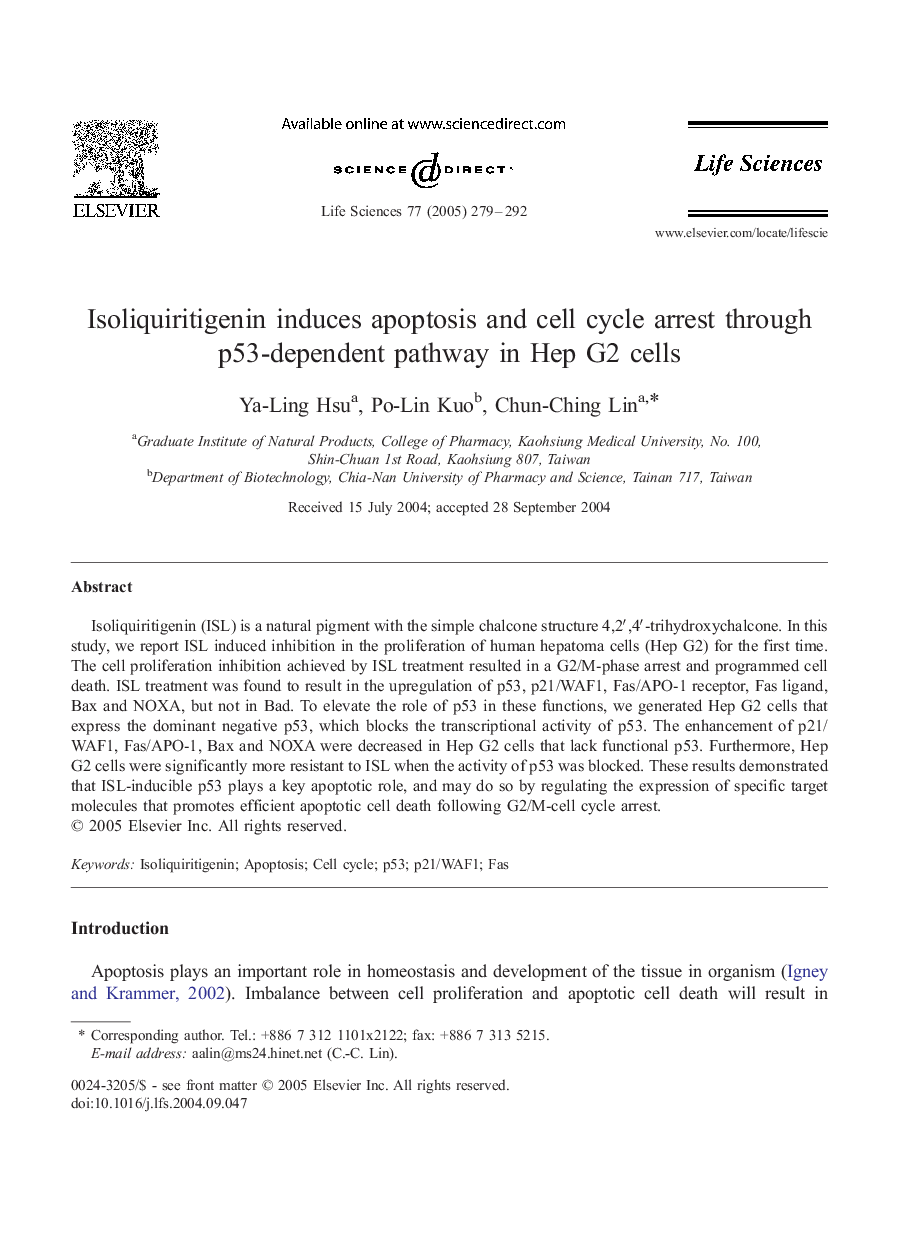| Article ID | Journal | Published Year | Pages | File Type |
|---|---|---|---|---|
| 9012509 | Life Sciences | 2005 | 14 Pages |
Abstract
Isoliquiritigenin (ISL) is a natural pigment with the simple chalcone structure 4,2â²,4â²-trihydroxychalcone. In this study, we report ISL induced inhibition in the proliferation of human hepatoma cells (Hep G2) for the first time. The cell proliferation inhibition achieved by ISL treatment resulted in a G2/M-phase arrest and programmed cell death. ISL treatment was found to result in the upregulation of p53, p21/WAF1, Fas/APO-1 receptor, Fas ligand, Bax and NOXA, but not in Bad. To elevate the role of p53 in these functions, we generated Hep G2 cells that express the dominant negative p53, which blocks the transcriptional activity of p53. The enhancement of p21/WAF1, Fas/APO-1, Bax and NOXA were decreased in Hep G2 cells that lack functional p53. Furthermore, Hep G2 cells were significantly more resistant to ISL when the activity of p53 was blocked. These results demonstrated that ISL-inducible p53 plays a key apoptotic role, and may do so by regulating the expression of specific target molecules that promotes efficient apoptotic cell death following G2/M-cell cycle arrest.
Related Topics
Health Sciences
Medicine and Dentistry
Cardiology and Cardiovascular Medicine
Authors
Ya-Ling Hsu, Po-Lin Kuo, Chun-Ching Lin,
